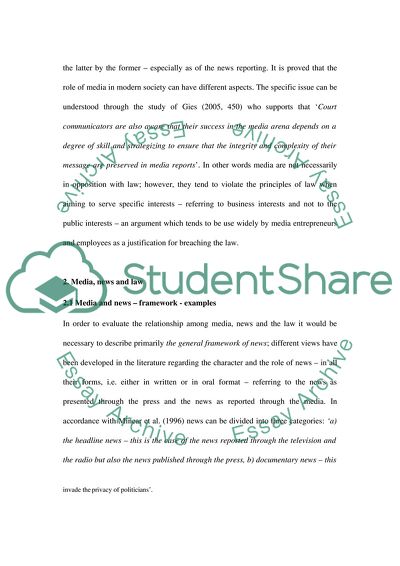Cite this document
(The Potential Violation of Law through the Media Research Paper, n.d.)
The Potential Violation of Law through the Media Research Paper. Retrieved from https://studentshare.org/media/1730301-the-media-do-not-just-report-the-news-they-make-it-this-is-capable-of-seriously-interfering-with-the-implementation-and-enforcement-of-law-and-criminal-justice-policies-discuss-with-reference-to-the-modules-readings-and-if-relevant-illustrate-with
The Potential Violation of Law through the Media Research Paper. Retrieved from https://studentshare.org/media/1730301-the-media-do-not-just-report-the-news-they-make-it-this-is-capable-of-seriously-interfering-with-the-implementation-and-enforcement-of-law-and-criminal-justice-policies-discuss-with-reference-to-the-modules-readings-and-if-relevant-illustrate-with
(The Potential Violation of Law through the Media Research Paper)
The Potential Violation of Law through the Media Research Paper. https://studentshare.org/media/1730301-the-media-do-not-just-report-the-news-they-make-it-this-is-capable-of-seriously-interfering-with-the-implementation-and-enforcement-of-law-and-criminal-justice-policies-discuss-with-reference-to-the-modules-readings-and-if-relevant-illustrate-with.
The Potential Violation of Law through the Media Research Paper. https://studentshare.org/media/1730301-the-media-do-not-just-report-the-news-they-make-it-this-is-capable-of-seriously-interfering-with-the-implementation-and-enforcement-of-law-and-criminal-justice-policies-discuss-with-reference-to-the-modules-readings-and-if-relevant-illustrate-with.
“The Potential Violation of Law through the Media Research Paper”, n.d. https://studentshare.org/media/1730301-the-media-do-not-just-report-the-news-they-make-it-this-is-capable-of-seriously-interfering-with-the-implementation-and-enforcement-of-law-and-criminal-justice-policies-discuss-with-reference-to-the-modules-readings-and-if-relevant-illustrate-with.


